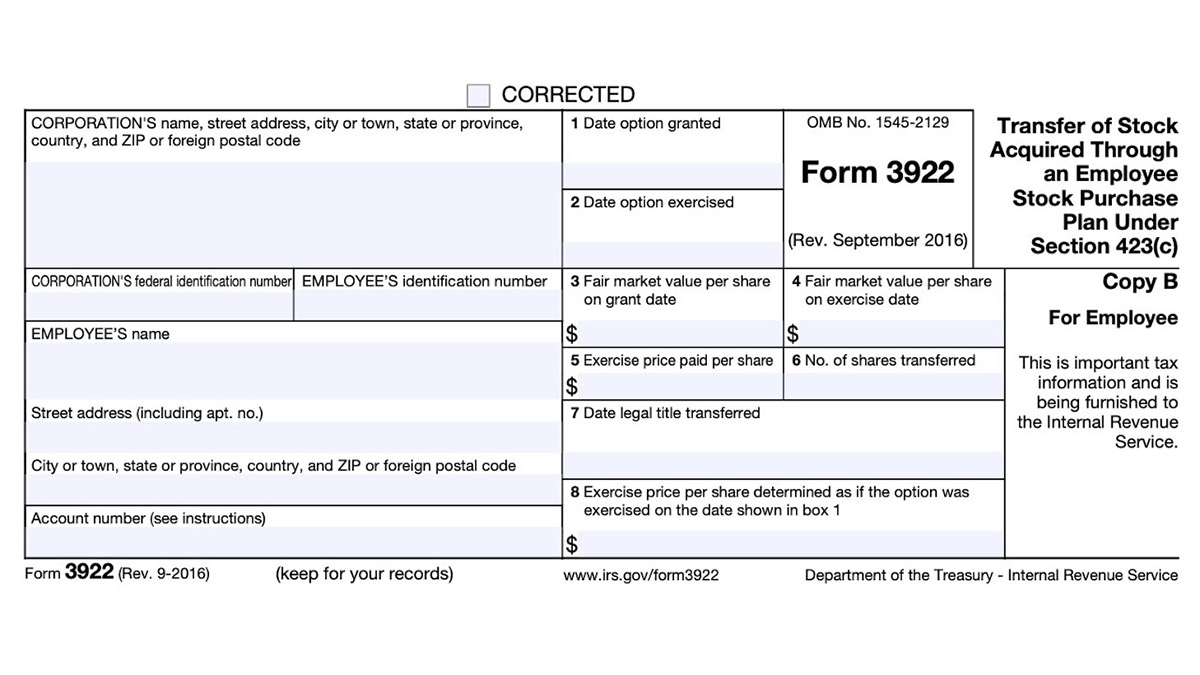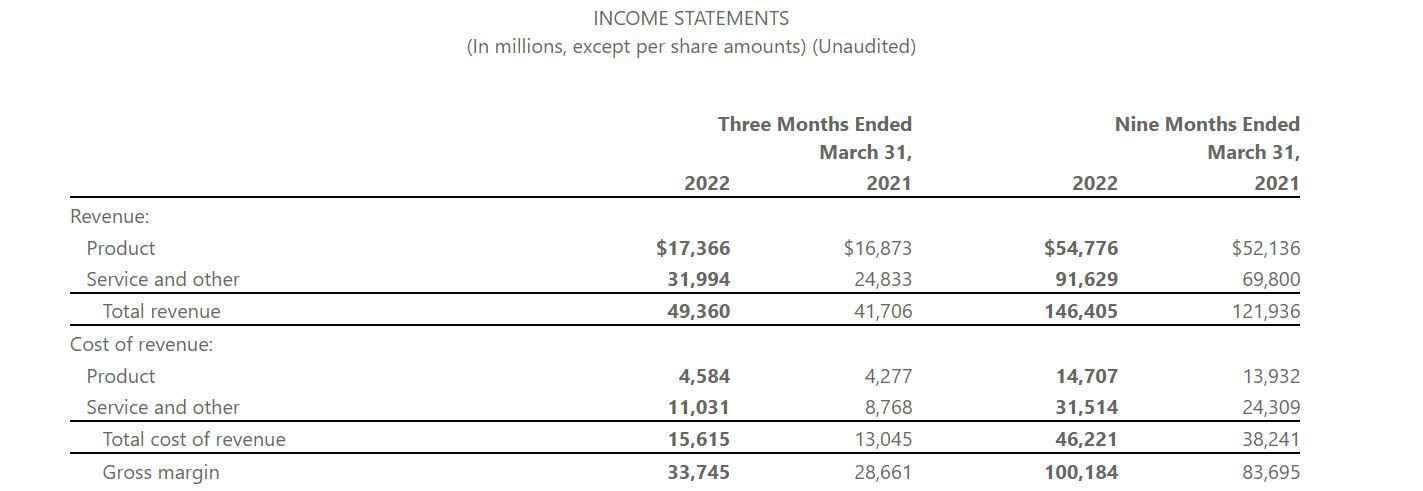Home>Finance>How To Report Settlement Payments On A Tax Return


Finance
How To Report Settlement Payments On A Tax Return
Published: October 29, 2023
Learn how to report settlement payments on your tax return and get expert advice on managing your finances.
(Many of the links in this article redirect to a specific reviewed product. Your purchase of these products through affiliate links helps to generate commission for LiveWell, at no extra cost. Learn more)
Table of Contents
- Introduction
- Understanding Settlement Payments
- Types of Settlement Payments
- Reporting Requirements for Settlement Payments
- When to Report Settlement Payments
- Form 1099-MISC
- Reporting Settlement Payments as Income
- Deducting Settlement Payments
- Reporting Non-Taxable Settlement Payments
- Importance of Properly Reporting Settlement Payments
- Conclusion
Introduction
Welcome to our guide on how to report settlement payments on a tax return. If you have recently received a settlement payment, it is essential to understand the correct reporting requirements to ensure compliance with the Internal Revenue Service (IRS) regulations. Failure to report settlement payments accurately can lead to penalties and potential audits. Understanding how to handle settlement payments can save you time, money, and headaches when it comes to filing your tax returns.
A settlement payment is a sum of money or assets received as compensation for various legal claims, such as personal injury, discrimination, wrongful termination, or breach of contract, among others. It is crucial to correctly determine the nature of the settlement payment, as different types of settlements have different tax implications. Some settlement payments are considered taxable income, while others may be partially or entirely tax-free.
In this guide, we will explore the different types of settlement payments and the reporting requirements for each. We will discuss when you should report settlement payments on your tax return and which form to use for reporting. Additionally, we will delve into the process of reporting settlement payments as income and how you may be able to deduct certain settlement payments. Finally, we will emphasize the importance of properly reporting settlement payments to avoid potential consequences from the IRS.
Understanding Settlement Payments
Settlement payments are financial compensations made to individuals or entities to resolve legal disputes without going through a trial or litigation process. These payments are typically negotiated between the parties involved, and the terms of the settlement are documented in a legal agreement.
There are various types of settlement payments, including those related to personal injury, employment disputes, intellectual property infringement, contractual breaches, and more. The purpose of these payments is to provide compensation for damages, losses, or other legal claims. Settlement payments can come in the form of a lump sum or structured payments over a specific period.
It is essential to understand that not all settlement payments are taxable. The taxability of settlement payments depends on the nature of the underlying claim and the specific provisions of the Internal Revenue Code. Some settlement payments are considered income and must be reported on your tax return, while others may be excluded from income due to specific tax laws or regulations.
When it comes to determining the taxability of settlement payments, several factors come into play:
- Type of Claim: The type of legal claim that gave rise to the settlement payment is a crucial factor. For example, settlement payments for personal physical injuries are generally tax-free, while payments for emotional distress or punitive damages may be taxable.
- Intent: The IRS considers the intent of the payer when determining the taxability of settlement payments. If the payment is meant to compensate for lost wages, it is likely to be taxable.
- Expenses: Any attorney’s fees or other legal expenses that you incurred in connection with the settlement may affect the taxability of the payment.
It is important to consult with a qualified tax professional or attorney to understand the tax implications of your specific settlement payment. They can help you navigate the complex tax rules and ensure compliance with IRS regulations.
Types of Settlement Payments
Settlement payments can vary widely depending on the nature of the legal dispute or claim being resolved. Here are some common types of settlement payments:
- Personal Injury Settlements: Settlements related to personal injury claims are among the most common types of settlement payments. These payments compensate individuals who have suffered physical injuries or emotional distress due to the fault or negligence of another party. Personal injury settlements may cover medical expenses, pain and suffering, lost wages, and other damages.
- Employment Settlements: Employment-related settlements arise from disputes such as wrongful termination, discrimination, harassment, or wage and hour violations. These settlements typically involve compensation for lost wages, severance pay, emotional distress, legal fees, and other damages.
- Contractual Settlements: Contractual settlements occur when parties involved in a contract dispute agree to resolve their differences out of court. In these cases, the settlement payment usually compensates for breach of contract, damages, or other contractual obligations.
- Intellectual Property Settlements: Settlement payments in intellectual property disputes, such as patent or copyright infringement, aim to resolve conflicts over the unauthorized use of intellectual property. These payments may involve royalties, licensing agreements, or compensation for lost profits.
- Class Action Settlements: Class action lawsuits involve a group of individuals who have suffered harm from a common defendant. Class action settlements provide compensation to the affected individuals and may involve significant sums of money, redistribution of assets, or changes in business practices.
These are just a few examples of settlement payments. It’s important to note that each settlement is unique, and the specific terms and conditions of the settlement agreement determine the payment structure and tax consequences.
Remember, the taxability of settlement payments depends on several factors, including the purpose of the payment, the nature of the claim, and applicable tax laws. It is crucial to consult with a tax professional or attorney to understand the tax implications of your specific settlement payment.
Reporting Requirements for Settlement Payments
When it comes to reporting settlement payments on your tax return, the key is to accurately reflect the income or tax-free nature of the payment. The reporting requirements vary depending on the type of settlement payment and the applicable tax laws. Here are some general guidelines:
Taxable Settlement Payments: If you receive a settlement payment that is considered taxable income, you must report it as such on your tax return. The IRS expects you to report all income, including settlements, on either Form 1040 (individuals) or Form 1120 (businesses).
Form 1099-MISC: In many cases, the payer of the settlement payment will issue a Form 1099-MISC (Miscellaneous Income) to both you and the IRS. This form reports payments of $600 or more for services rendered, including settlement payments. You should receive a copy of this form from the payer, and it will indicate the amount of the settlement payment that you need to report on your tax return.
Self-Employed Individuals: If you are self-employed and receive a settlement payment, you will likely report it on Schedule C (Profit or Loss from Business) as part of your overall business income. You should consult with a tax professional to ensure proper reporting and any additional deductions or considerations specific to your self-employment situation.
Non-Taxable Settlement Payments: Some settlement payments are considered non-taxable, meaning they are not subject to income tax. However, it is still important to properly document and report these payments. While they may not be taxable income, they may have other implications, such as reducing certain deductions or affecting your eligibility for certain tax credits.
Documentation: To support the reporting of settlement payments, it is essential to retain all relevant documentation, including the settlement agreement and any related correspondence. These documents can help you accurately report the payment and provide evidence in case of an IRS inquiry or audit.
It is essential to note that the reporting requirements for settlement payments can be complex, and the specific rules may vary depending on your individual circumstances. It is highly recommended to consult with a qualified tax professional or attorney to ensure compliance and accuracy when reporting settlement payments on your tax return.
When to Report Settlement Payments
Knowing when to report settlement payments on your tax return is crucial for meeting IRS requirements and avoiding potential penalties. The timing of reporting depends on several factors:
Calendar Year: Generally, settlement payments should be reported in the tax year they are received. This means if you receive a settlement payment in 2022, you would report it on your 2022 tax return, even if the settlement agreement was reached in a previous year.
Cash Method vs. Accrual Method: The method of accounting you use (cash or accrual) can impact when you report settlement payments. If you use the cash method, you report income when it is physically or constructively received. For accrual method taxpayers, income is reported when it is earned or when all substantial restrictions on its receipt are removed. Most individuals use the cash method of accounting, but some businesses may use the accrual method.
Structured Settlement Payments: If your settlement agreement includes structured payments spread out over a period of time, you will generally report the income as you receive each payment. However, there may be instances where the structured settlement payments are tax-free, such as personal injury payments to cover medical expenses. In such cases, the tax treatment may differ, and it’s important to consult a tax professional for guidance.
Estimated Tax Payments: Settlement payments, especially large ones, can significantly impact your tax liability. It’s important to consider the tax implications of the settlement when making estimated tax payments throughout the year. Failing to make appropriate estimated tax payments may result in penalties and interest.
When in doubt about the timing of reporting settlement payments, consult with a tax professional or attorney who can provide guidance specific to your situation. They can help ensure accurate and timely reporting, minimizing the risk of IRS scrutiny and compliance issues.
Form 1099-MISC
Form 1099-MISC is an important document in the context of reporting settlement payments. It is used to report various types of miscellaneous income, including settlement payments, to both the recipient and the Internal Revenue Service (IRS).
When a settlement payment meets the reporting threshold, which is generally $600 or more, the payer of the settlement is required to issue a Form 1099-MISC to the recipient and file a copy with the IRS. This form provides details of the payment, including the amount, recipient’s name, and taxpayer identification number (TIN).
As the recipient of a settlement payment, it is essential to carefully review the Form 1099-MISC for accuracy. Ensure that the information provided matches the settlement agreement, and report the income correctly on your tax return.
When you receive a Form 1099-MISC for a settlement payment, you may find the payment amount reported in Box 3 (Other Income) or Box 10 (Nonemployee Compensation), depending on the nature of the payment. It is crucial to understand the specific instructions provided on the form and consult a tax professional if you have any questions or concerns.
Remember, even if you do not receive a Form 1099-MISC for a settlement payment, it is still your responsibility to report the income accurately on your tax return. It is recommended to keep detailed records of your settlement payments and any supporting documentation, such as the settlement agreement, to substantiate the reported amounts in case of an IRS inquiry.
Failure to report settlement payments received or to properly account for amounts reported on Form 1099-MISC can lead to IRS penalties and possible audits. Accuracy and compliance are essential when it comes to reporting settlement payments on your tax return.
If you have any questions about how to handle a Form 1099-MISC or the reporting of settlement payments, it is advisable to seek guidance from a qualified tax professional who can provide personalized advice based on your specific circumstances.
Reporting Settlement Payments as Income
Most settlement payments are considered taxable income and must be reported on your tax return. When reporting settlement payments as income, it is crucial to accurately reflect the amount received and categorize it appropriately. Here are some important points to consider:
Form 1040 or Form 1120: Generally, individuals report settlement payments as income on Form 1040 (U.S. Individual Income Tax Return), while businesses report them on Form 1120 (U.S. Corporation Income Tax Return). These forms contain specific sections or schedules where you report your income, deductions, and other relevant financial information.
Type of Income: Depending on the nature of the settlement, you may report the income in different sections of your tax return. For example, personal injury settlements are generally reported as “Other Income” on Form 1040, while settlement payments related to business activities may be reported on specific business income schedules.
Reporting Entities: If you received a settlement payment as an individual, you will report it under your social security number on your personal tax return. However, if you received the payment as a business entity, it should be reported using the entity’s tax identification number (TIN).
Effect on Tax Liability: Settlement payments can impact your overall tax liability, potentially pushing you into a higher tax bracket. It is essential to consider the tax implications and plan accordingly, including making estimated tax payments if necessary.
Legal and Professional Fees: In some cases, you may deduct legal and professional fees associated with the settlement payment. However, the deductibility of these fees can be complex, and it’s important to consult with a tax professional or attorney to determine if they are eligible for deduction.
Remember, accurately reporting settlement payments as income is essential for complying with tax laws and avoiding penalties. It is advisable to consult with a tax professional who can guide you through the reporting process and help ensure that you meet all necessary requirements while maximizing available deductions.
Properly reporting settlement payments not only fulfills your tax obligations, but it also provides transparency to the IRS and may help avoid potential audits or inquiries related to unreported income. Taking the time to accurately report settlement payments as income is a crucial step in maintaining compliance with tax regulations.
Deducting Settlement Payments
When it comes to deducting settlement payments on your tax return, the rules can be complex and depend on the specific circumstances of the payment. In general, settlement payments are not deductible unless they meet certain criteria outlined by the Internal Revenue Service (IRS). Here are some key considerations:
Ordinary and Necessary Expenses: To be deductible, the settlement payment must be considered an ordinary and necessary expense related to your business or trade. This means that the payment must be directly connected to your business operations and reasonably necessary to generate income or maintain the business.
Legal and Professional Fees: In some cases, you may be able to deduct legal and professional fees associated with the settlement payment. If the settlement is directly related to your business activities, you may deduct the fees as a business expense. However, if the settlement is personal in nature, such as a personal injury claim, the associated legal fees are typically not deductible.
Capital Expenditures: If the settlement payment is used to acquire assets or make capital improvements to your business, it may be considered a capital expenditure rather than an ordinary and necessary expense. In such cases, you may need to capitalize and depreciate the payment over time rather than fully deducting it in the year of the payment.
Tax Advice: Due to the complexity of deducting settlement payments, it is highly recommended to consult with a tax professional or attorney to determine the deductibility of the payment in your specific circumstances. They can help you analyze the details of the settlement and identify any potential deductions or limitations.
Remember, deduction rules for settlement payments can be nuanced, and the IRS may scrutinize deductions related to settlements. It is important to accurately document the purpose of the payment, maintain records of the settlement agreement, and follow proper reporting guidelines when claiming any deductions.
To ensure compliance with IRS regulations and maximize available deductions, seek the advice of a qualified tax professional who can provide personalized guidance based on your individual situation. They can help you navigate the deductibility of settlement payments and provide valuable insights to help optimize your tax position.
Reporting Non-Taxable Settlement Payments
Not all settlement payments are taxable. Some payments may be excluded from income based on specific tax laws or regulations. However, it is still important to properly document and report these non-taxable settlement payments on your tax return. Here’s what you need to know:
Identifying Non-Taxable Payments: Non-taxable settlement payments are typically exempt from federal income tax under specific provisions of the Internal Revenue Code. Some common examples of non-taxable settlement payments include:
- Payments received for personal physical injuries or physical sickness
- Compensation for worker’s compensation claims
- Payments for certain types of discrimination or harassment claims
- Compensatory damages for emotional distress caused by a physical injury or sickness
Proper Reporting: While non-taxable settlement payments should not be included as income on your tax return, you are still required to report them. To report non-taxable settlement payments correctly, you should:
- Use the appropriate tax form: Generally, individuals report non-taxable settlement payments on Form 1040, while businesses report them on Form 1120.
- Indicate the payment: On the tax form, you should report the non-taxable settlement payment on the appropriate line or schedule as instructed by the IRS. Be sure to accurately document the payment and provide any additional required information.
Impact on Other Tax Considerations: While non-taxable settlement payments are not subject to federal income tax, they may still have implications for other aspects of your tax return. For instance:
- Adjustments to deductions: Non-taxable settlement payments may impact certain deductions or credits you are eligible for. Consult with a tax professional to understand any potential adjustments that need to be made on your tax return.
- State and Local Taxes: Non-taxable settlement payments may still be subject to state and local taxes. Check the regulations in your specific jurisdiction to understand how these payments are treated.
Reporting non-taxable settlement payments accurately is crucial to ensure compliance with tax laws and avoid unnecessary inquiries from the IRS. It is essential to retain all relevant documentation, such as the settlement agreement and any supporting information, to substantiate the non-taxable nature of the payment.
Consulting with a qualified tax professional or attorney is highly recommended to ensure proper reporting and to navigate the complexities of non-taxable settlement payments. They can help you understand the specific tax rules and provide tailored advice based on your unique circumstances.
Importance of Properly Reporting Settlement Payments
Properly reporting settlement payments on your tax return is not only a legal requirement but also crucial for a variety of reasons. Failing to accurately report settlement payments can lead to serious consequences, including penalties, audits, and legal complications. Here are the key reasons why proper reporting is essential:
Compliance with Tax Laws: Reporting settlement payments accurately ensures compliance with the tax laws and regulations set forth by the Internal Revenue Service (IRS). Each year, the IRS processes millions of tax returns and conducts audits to ensure taxpayers are fulfilling their reporting obligations. Failing to report settlement payments correctly can result in penalties, interest, and even legal action.
Avoiding Penalties and Audits: The IRS may impose penalties for underreporting income or negligence in reporting. Additionally, if your tax return raises red flags or inconsistencies, it may increase your chances of being subjected to an audit. Properly reporting settlement payments can help minimize the likelihood of penalties and audits, reducing stress and potential financial burdens.
Preserving Tax Benefits: Properly reporting settlement payments ensures that you preserve your eligibility for various tax benefits and deductions. Accurate reporting allows you to claim applicable deductions, credits, and exemptions that can help reduce your overall tax liability. By not properly reporting settlement payments, you risk missing out on potential tax savings.
Establishing Transparency: Accurate reporting of settlement payments establishes transparency with the IRS. By reporting income correctly, you demonstrate your commitment to complying with tax laws and providing the government with a clear and accurate picture of your financial situation. This can help build trust and minimize the likelihood of scrutiny or further inquiries from the IRS.
Maintaining Documentation: Properly reporting settlement payments requires maintaining thorough documentation, including copies of the settlement agreement and supporting paperwork. This documentation serves as a record of your compliance and can be valuable in case of IRS inquiries or audits. It is advisable to keep these documents for several years to ensure proper record-keeping.
Peace of Mind: By accurately reporting settlement payments, you can have peace of mind knowing that you have fulfilled your tax obligations and are unlikely to face potential legal or financial consequences in the future. This allows you to focus on other aspects of your life or business without the worry of potential tax-related issues.
Remember, the importance of proper reporting extends beyond just settlement payments. It is vital to accurately report all income and transactions on your tax return to maintain compliance with tax laws, benefit from available deductions and credits, and avoid unnecessary penalties or audits.
If you have concerns or questions about reporting settlement payments or need guidance on your specific situation, it is recommended to consult with a qualified tax professional who can provide expert advice tailored to your individual circumstances.
Conclusion
Reporting settlement payments on your tax return is a critical task that requires careful attention to ensure compliance with IRS regulations. Whether the settlement payment is taxable or non-taxable, accurate reporting is essential to avoid penalties, audits, and legal complications. By understanding the reporting requirements, knowing when to report, and properly categorizing settlement payments, you can fulfill your tax obligations with confidence.
It is important to consult with a qualified tax professional or attorney who can provide expert guidance tailored to your specific circumstances. They can assist you in determining the taxability of settlement payments, help you navigate the complexities of tax laws, and provide personalized advice on the reporting process.
Properly reporting settlement payments not only meets your legal obligations but also establishes transparency with the IRS and helps preserve tax benefits. It allows you to claim eligible deductions, credits, and exemptions, reducing your overall tax liability and maximizing potential tax savings. Additionally, accurate reporting helps maintain documentation integrity, supporting your compliance in case of IRS inquiries or audits.
By providing comprehensive and accurate information about settlement payments on your tax return, you can achieve peace of mind, knowing that you have fulfilled your reporting obligations. This allows you to focus on other aspects of your life or business without the stress and worry of potential tax-related issues.
Remember, each settlement payment is unique, and the tax implications may vary based on the nature of the claim and applicable tax laws. Stay informed, seek professional advice, and stay diligent in accurately reporting settlement payments to ensure compliance and protect your financial well-being.














